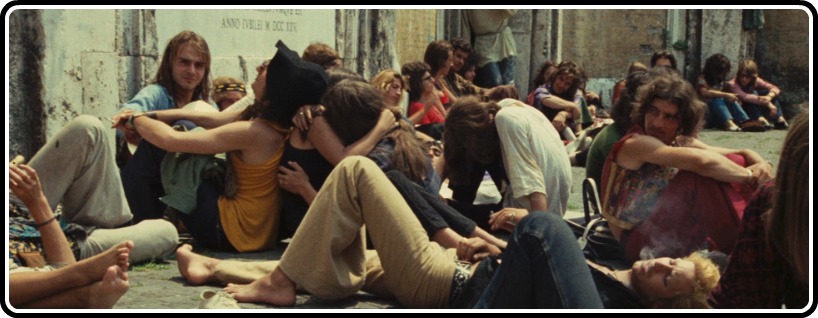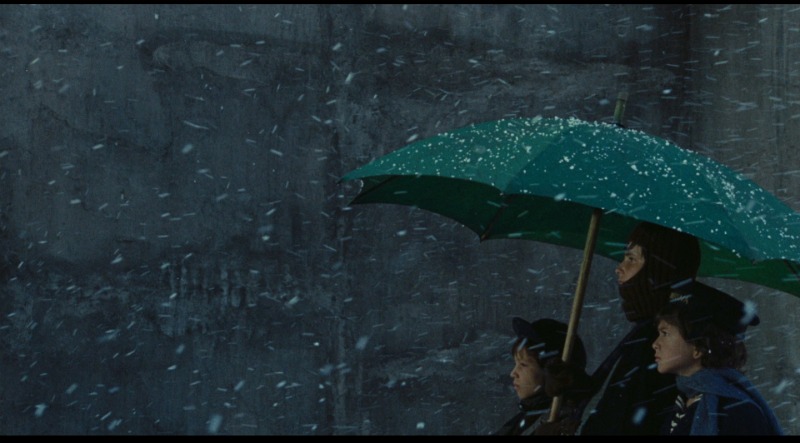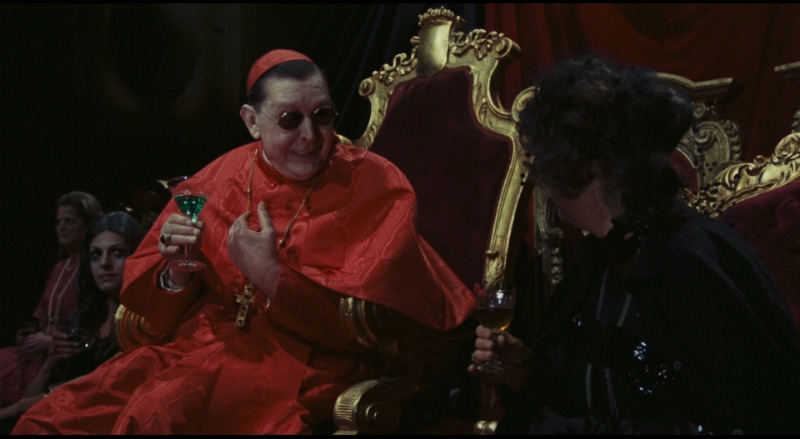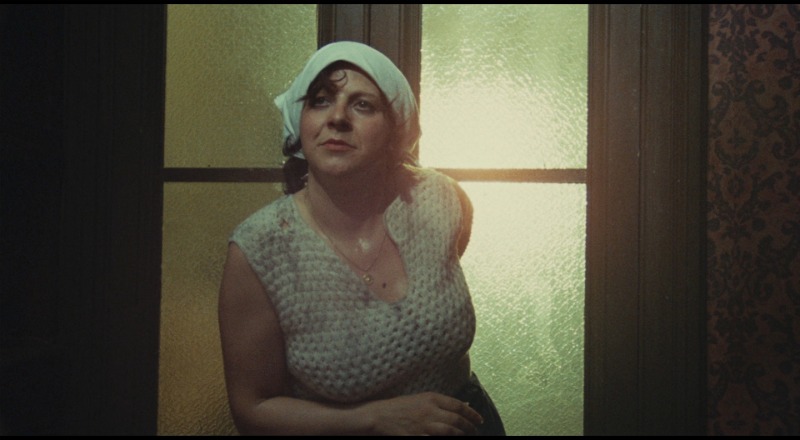
Fellini conceived Roma as what he called a “Sunday film,” something he could pick up at any point whenever inspiration struck. The title and goal of the film – to communicate the pulse of the city through a mix of documentary, incident, short story, and random vague idea – was certainly conducive to this. He could basically shoot anything. So for those who feel that something like Amarcord is too unfocused and freewheeling, now’s the time to jump off, but for those willing to ride down the master filmmaker’s unpredictable river, here’s something very much a piece of, yet apart from, his earlier, better-known work.
Children view a lecture that gets sabotaged by a lewd photo. A young man moves into a rundown apartment building. An archeological dig uncovers hidden art. A vaudeville house is treated like a living room, and every other room of the house. The air raid siren rings, the prostitutes come out to hustle, and the clergy goes to a fashion show. It follows a certain cinematic logic, the connections so emotionally clear, skipping from beat to beat the way memory intersects with fantasy as one wanders down the street, simultaneously observing, recalling, and imagining the way things were and could be.

The memory and imagination are largely realized at Fellini’s working home, the gigantic Italian film studio Cinecittà. Whole roads are constructed, with streetcars and everything, and entire civilization dreamed as much as it is found. Nostalgia is cut by specificity. The vaudeville show is not just an onslaught of talent; it’s an entire audience content to to their own filth, calling only for the dancing girls. Should any other talent, no matter how remarkable, arrive, they’ll be booed offstage, or worse. A dead cat is thrown. A child urinates in the aisle. That’s the worst of it, but it hardly gets much better. A trip to a brothel is portrayed with a hint of innocence and naiveté, a significant contrast to the women who work there, whose bodies are aging and spirits sagging. Fellini casts good men, but spectacular women, all grotesque in some spectacular way, any – no matter how beautiful – could be the subject of their own daily comic strip.
In the documentary sections, hippies gather in public spaces to sit, sleep, pray, bathe, and make love. The kids have it so easy, we hear in voiceover, a sentiment conveyed with equal parts disdain and jealousy, as the man speaking refers mainly to how easily they come by sex. They don’t have to visit a brothel under the cover of night to pay for delusion and disappointment. We hear Fellini bark orders off-camera, desperate to catch every corner of a life he could not otherwise depict, as though Rome had grown beyond his conception, beyond his understanding, but all the more an object of his fascination. The film’s most magnificent section sees an archeological team uncover gorgeous works of art that are subsequently destroyed by the air they’ve let in, as though Rome’s history, so carefully preserved, will wither under modern scrutiny, lost forever to the very source of its discovery.
Later, Fellini will find famed Italian actress Anna Magnani on her way into her home, describing her as “a symbol of Rome itself.” She just tells him to go home.

Masters of Cinema’s high-definition transfer, available now on a Region-B locked Blu-ray disc, looks very, very good. Roma is the character, so it’s important to see it with as much clarity as possible, all the cracks in the pavement and the natural boldness of its color. The quality of the image varies with its method of production. The studio work is stunning, the vaudeville scenes in particular often shot with very little light, but losing nothing here in clarity. There’s none of the usual muddiness with which one often associates night scenes to be found here; that’s for the nighttime documentary shots. The daytime documentary work holds up nicely alongside its studio-set counterpart, bewitching and glowing with the warmth of natural sunlight. (screencaps courtesy of DVD Beaver)
There are only two special features of note on the disc – a discussion of the film with Italian film scholar Chris Wagstaff, and eighteen minutes (including explanatory intertitles) of scenes deleted from the film for its international release. Wagstaff’s contributions are nice, and he’s clearly very enthusiastic about his subject (must make for a hell of a teacher), but his passion is purely analytical, conveying nothing of the emotional experience of the film, or Fellini in general. The deleted scenes are of interest, particularly a brief scene with Marcello Mastroianni, who’s none too pleased that the crew has interrupted his dinner, but is happy to make time for them once he sees Fellini – and, more importantly, a beautiful young women – among them. Many of the rest are extended versions of scenes from the film.

The booklet only includes a single essay, by film scholar Pasquale Iannone. It’s a fine enough piece, but falls into a rhythm of being more or less a play-by-play of the film that it can’t quite wiggle out of.
While not perhaps as essential a package, or film, as their City of Women release, Masters of Cinema does give us a really beautiful presentation of Fellini’s “Sunday film.” The special features are a little thin, so more unsure buyers may want to opt for that other film first, but for those who have already come to love the auteur, this is another essential release that more than deserves the trust we’ve placed in this great company.


